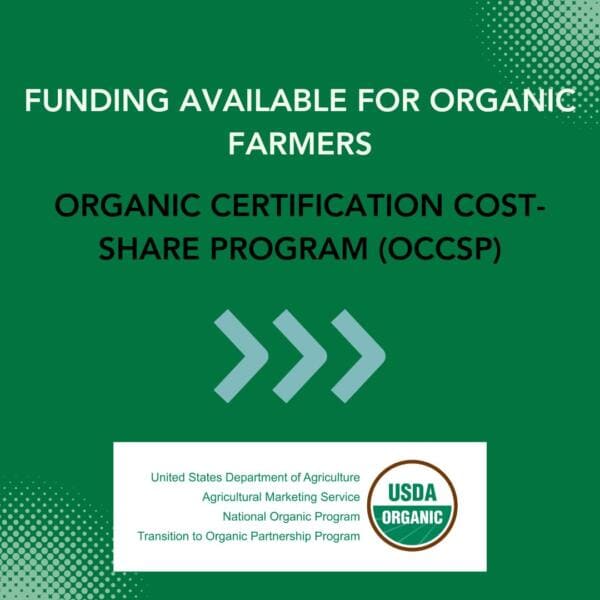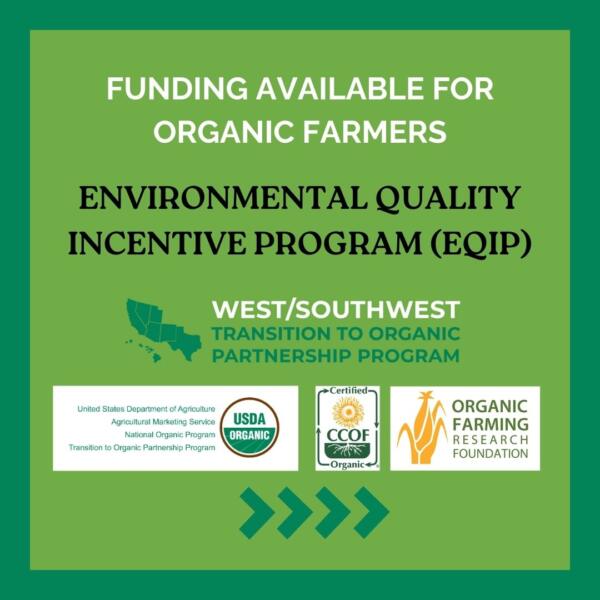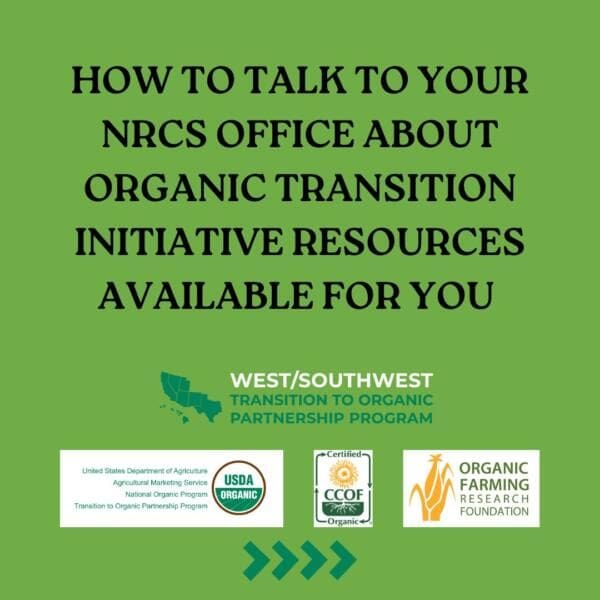Time has a way of slipping through our fingers, yet it leaves behind a trail of achievements and lessons learned. I can’t believe it’s already April! And that means it’s been a year since the Organic Farming Research Foundation (OFRF) joined the USDA Transition to Organic Production Partnership in the West/Southwest region (TOPP-W/SW). This month, we are taking a moment to reflect on the journey, the milestones achieved, and the future we’re cultivating together for organic and transitioning-to-organic producers.
Joining TOPP-W/SW wasn’t just a decision; it was a commitment to deepen our roots in the organic farming community and extend our reach to those transitioning to organic practices. Our goal was clear: to bridge the gap between USDA farm support programs and the farmers who need them most. And what a year it’s been! Through dedication and collaboration, we’ve developed an array of deliverables designed to empower farmers at every step of their organic journey.
We recognized early on that knowledge is power. To demystify the process of accessing USDA support, we crafted comprehensive resource guides and toolkits, which are distributed to nearly 30 partner organizations working directly with farmers in the West/Southwest region. These toolkits provide our on-the-ground partners with information and communication materials meant to serve as a beacon for farmers navigating the often complex landscape of organic certification, conservation programs, and other financial and technical assistance programs. Importantly, we have made strides in our efforts to provide these materials in both English and Spanish, recognizing that significant numbers of farmers transitioning to organic are Spanish-speaking. In addition to creating all our TOPP-W/SW toolkits into Spanish, we recently added a Spanish Resources page to our website.
With TOPP-W/SW so far we have provided resources on the Organic Certification Cost Share Program (OCCSP) in English and in Spanish, the Environmental Quality Incentive Program (EQIP) in English and in Spanish, and the Organic Transition Initiative (OTI) in English and in Spanish, which includes a general guide for How to Talk to Your NRCS Office. We are looking forward to continuing to develop and disseminate toolkits like these to help farmers and ranchers access much-needed support in their organic journey. All of the TOPP-W/SW resources are available on the Organic and Transitioning Resources page of our website.
These toolkits and explainers are just the beginning, we are also working to amplify the stories of organic producers who have utilized financial and technical assistance programs. Information is important, but stories provide a spark to action that information doesn’t often offer. If you are a farmer in who has used USDA support programs, please reach out! We would love to hear your story, and we have stipends to offer as compensation for your time speaking with us.
As we celebrate this one-year milestone, we’re reminded of the journey ahead. The seeds we’ve planted together with our TOPP-W/SW partners are beginning to sprout, but there’s more work to be done. We’re committed to expanding our resources and continuing to be a science- and research-equipped partner in this work. The feedback and stories from the farmers we’ve worked with will continue to guide our path forward.
Whether you’re a seasoned organic farmer, in the midst of transitioning, or simply exploring the idea, we’re here for you. Our journey with TOPP-W/SW is just one chapter in a larger story of growth, resilience, and community. We invite you to join us, share your experiences, and together, let’s continue to cultivate a future where organic farming thrives.
As we reflect on this past year and look to the future, our gratitude goes out to each farmer, partner, and supporter who’s joined us on this journey. Your dedication to organic and transitioning-to-organic production is the true force behind our collective achievements. Here’s to another year of growth, challenges, and triumphs in the organic farming community. For more information on accessing our resources or getting involved, visit our website or reach out directly (gordon@ofrf.org). Your journey to organic farming is one we’re eager to support.
Eat well,
Gordon





